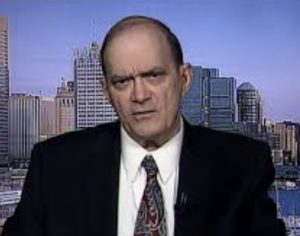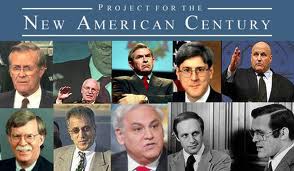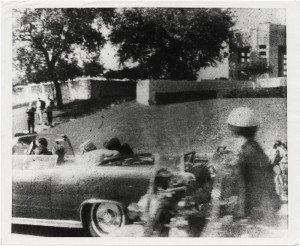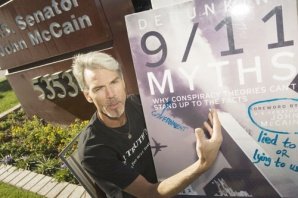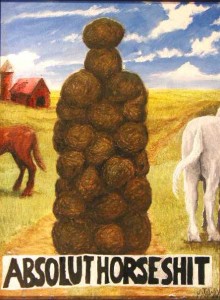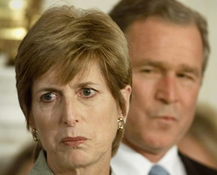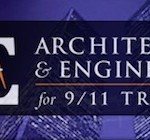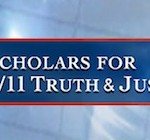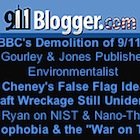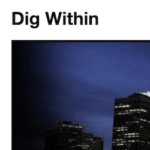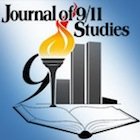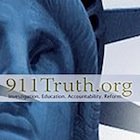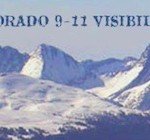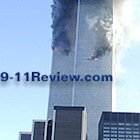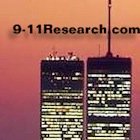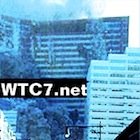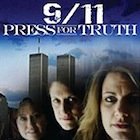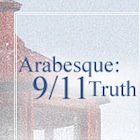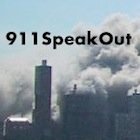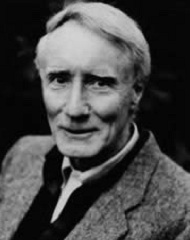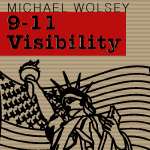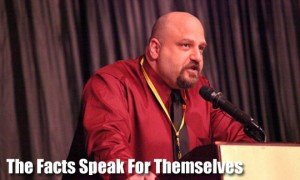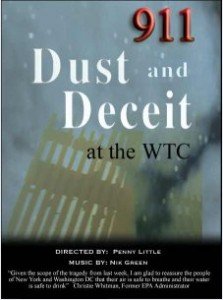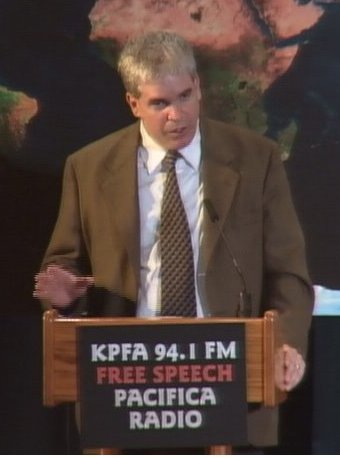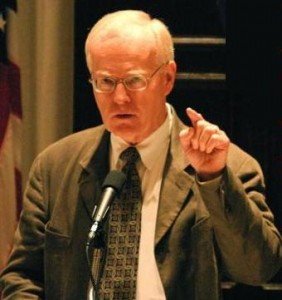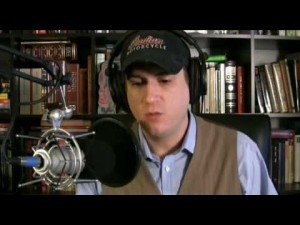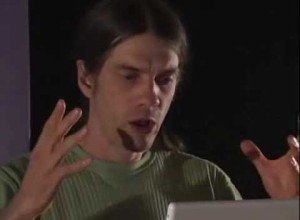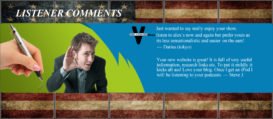“JFK, Watergate, 9/11: Recurring Patterns in America’s Deep Events”
By Dr. Peter Dale Scott
In American history there are two types of event: ordinary events which the information systems of the country can understand and establish. There are also deep events, or meta-events, which the mainstream information systems of the country cannot digest. I mean by a “deep event” an event in which it is clear from the outset that there are aspects which will not be dealt with in the mainstream media, and will be studied only by those so-called “conspiracy theorists” who specialize in deep history.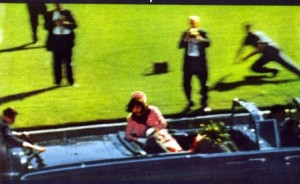
The events I shall discuss today exhibit continuities with each other and with other deep events, notably the Iran-Contra affair of the mid 1980s and the Oklahoma City bombing of 1995. But the three I shall discuss today – the JFK assassination, the initial Watergate break-ins, and 9/11 – are outstanding in this respect: that while they were attributed to insignificant and very marginal people, they had momentous impact, far more than most daily events by more important people, in redirecting American history. 1
If history is what is recorded, then deep history is the sum of events which tend to be officially obscured or even suppressed in traditional books and media. Important recent deep events include the political assassinations of the 1960s, Watergate, Iran-Contra, and now 9/11. All these deep events have involved what I call the deep state, that part of the state which is not publicly accountable, and pursues its goals by means which will not be approved by a public examination. The CIA (with its on-going relationships to drug-traffickers) is an obvious aspect of the deep state, but not the only one, perhaps not even the dirtiest.
When I talk of a deep state, this term (as opposed to others, like deep politics), is not my own invention. It is a translation of the Turkish gizli devlet, or derin devlet, a term used to describe the networks revealed by the so-called Susurluk incident of 1996, when the victims traveling together in what became a deadly car crash were identified as “an MP, a police chief, a beauty queen and her lover, a top Turkish gangster and hitman called Abdullah Catli.” The giveaway was that “Catli, a heroin trafficker on Interpol’s wanted list, was carrying a diplomatic passport signed by none other than the Turkish Interior Minister himself.” 2 He was carrying narcotics with him at the time of the crash. 3
The study of these deep events has slowly become more respectable in the almost half-century since the JFK assassination. A major reason has been the emergence of the Internet and other forms of new media, where the same deep events tend to get far more extensive treatment. 4 If the new media come in time to prevail over the priorities of the old, it is possible that we will see a paradigm shift with respect to what is appropriate for serious public discourse.
What I have learned over the years is that it is helpful to look at all these deep events together. This is true for both external reasons (how the nation and its media handle deep history) and for internal reasons (the content of deep events themselves).
JFK and 9/ll: Similarities
I gave a talk in November 2006 which by June 2007 had been seen on line by over 20,000 people. I wish to enlarge three of the comparisons I made, while beginning with five new ones.
1) Stock market speculation:
By this I am not referring to the dip and recovery that followed both events, which is common after any unsettling news. 5 I am referring to the dealings in special stocks which suggested, in both cases, prior knowledge of what was to come.
In early November 1963, David Harold (“Dry Hole”) Byrd and his investment partner, James Ling, bought $2 million worth of stock (132,600 shares) in Ling-Temco-Vought (LTV), Ling’s defense company. Then in January 1964 LTV received the first defense contract from the Pentagon – for a fighter plane to be used in the escalating war in Vietnam. I have calculated that this $2.5 million insiders’ purchase was worth $26 million by the end of 1967. Moreover the prescient purchase was about one hundred times the size of any other insider purchase in aerospace issues in the same period. 6
This does not prove that Byrd and Ling were directly involved in the Kennedy assassination, but it is likely that Byrd may have had inklings of what was going to happen. For Byrd owned the Texas School Book Depository building, where Oswald had been hired as an employee in October 1963. I have hypothesized that Oswald thought he was there on a surveillance assignment, to report on a fellow worker was under investigation by the Dallas Police. Byrd may have been privy to this arrangement, and have suspected more.
This is comparable to the notorious “puts” purchased in advance in 2001, in the stock of United Airlines and American Airlines. 7 Here too the advance purchases suggest special knowledge, but here too the purchasers and the perpetrators may not have been the same, especially if we imagine that intelligence agencies had prior indications of the event about to occur.
2) A number of senior officers were out of the country, including the Secretary of State
On November 22, 1963, six out of ten cabinet members were on their way to Japan, including Secretary of State Dean Rusk, Treasury Secretary Douglas Dillon, Interior Secretary Stewart Udall and Labor Secretary W.W. Wirtz. 8
On September 11, 2001, Secretary of State Colin Powell and CJCS Henry Shelton were traveling outside the country, while Attorney General John Ashcroft was also traveling. 9 Powell and Shelton were leading opponents of the Iraq War, and were eventually ousted, along with Ashcroft.
3) Prior investigations of the eventual suspects were impeded:
Oswald, who had been on the FBI’s Watch List since his travel to the Soviet Union in 1959, was inexplicably taken off watch list on October 9, 1963, just after his arrest in New Orleans and his alleged trip to Mexico City had made him a candidate for increased surveillance. 10 October 9, the day before the CIA reported to the FBI on Oswald in Mexico City, was the day CIA HQ itself received the news.
This is comparable to the obstruction by the Radical Fundamentalist Unit (RFU) at FBI Headquarters of the Minneapolis FBI’s efforts to interview the so-called twentieth hijacker, Zacarias Moussaoui, especially after Moussaoui’s arrest on August 15, 2001. 11 Moussaoui knew most of the other nineteen alleged hijackers, and an interview of him, if not have impeded, could have led to the detention of the nineteen. A Minnesota Special Agent, Harry Samit, later testified that he wrote FBI headquarters about seventy memos on Moussaoui between August 16 and September 11, all to no avail. 12
Similarly the CIA failed to tell the FBI that two of the terrorists, Khalid al-Mihdar and Nawaf al-Hazmi, were in the United States. 13 The blocking of the Moussaoui investigation, and the withholding of the CIA’s information, have both been blamed on Janet Reno’s so-called Wall memorandum of 1995. But the Wall memo was renewed on August 6, 2001, by Deputy Attorney General Larry Thompson. 14
Another example of such obstruction was the curtailment of the Army intelligence investigation of al-Qaeda through its Able Danger program. According to Paul Thompson’s Terror Timeline, military lawyers on three occasions forced members of Able Danger to cancel scheduled meetings with the FBI at the last minute. Lt. Colonel Anthony Shaffer later complained that “critical counterterrorism information [was] never passed from SOCOM [Special Operations Command] to the FBI before 9/11; this information included the original data regarding Atta and the terrorist cells in New York and the DC area.” Rep. Curt Weldon (R), who in 2005 helped bring to light the existence of the program, commented, “Obviously, if we had taken out that cell, 9/11 would not have occurred.” 15
Students of the John F. Kennedy assassination have speculated that Oswald’s name, with or without his knowledge and/or participation, was being used by the CIA in Mexico as part of a complex operation against Fidel Castro. 16 If true, the removal of his name from the FBI watch list would not be absurd, but understandable, to prevent an accidental law enforcement interruption of a CIA operation.
In like manner the obstructions of the FBI’s RFU would be understandable if Atta and Moussaoui or their names were being used as part of a contemporary intelligence operation. In this case what looks outwardly like senseless and incoherent behavior would actually be the result of FBI-CIA coordination. 17
A superficial distinction between the relevant events of 1963 and 2001 actually reinforces this possibility. Marvin Gheesling, the FBI Supervisor responsible for removing the stop on Oswald’s name, was later censured by Hoover for his action. Dave Frasca, the RFU chief who stopped the Minneapolis office from pursuing a criminal warrant against Moussaoui, was later promoted. 18 The difference is attributable to Hoover’s personal hostility to the CIA and his irritation with members of William C. Sullivan’s Intelligence Division of FBI (which included Gheesling) who were too cooperative with it.
4) Commission recommendations to increase power of intelligence agencies, or deep state
It is worth pointing out that the Commission Reports prepared with respect to both JFK and 9/11 were tightly controlled and produced the same recommendation: that the surveillance powers of intelligence agencies should be increased. This was quite paradoxical in the case of the Warren Report, which concluded both that Oswald was a loner and that the CIA should have greater powers to conduct surveillance of organized groups. It was hardly less paradoxical in the case of the 9/11 Report, which concluded its survey of repeated intelligence failures and Pakistani intrigues with recommendations for increased intelligence budgets and maintenance of current aid to Pakistan. (In June 2007 Ahmed Rashid blamed the current Pakistani political crisis on the “bad deal” and “blind bargain” that Washington had made with Musharraf after 9/11.) 19
A truly independent investigation of each event could, and indeed should, have been highly embarrassing to the CIA. Even in 2007 the CIA is still in non-compliance with the Assassination Records Review Act, and withholding documents with respect to an officer, George Joannides, who supervised the Cuban Revolutionary Student Directorate, or DRE, which had recurring contacts with Lee Harvey Oswald. The CIA shared nothing with the Warren Commission about its contacts with the DRE (which may have involved Oswald). Nor did the House Select Committee on Assassinations (HSCA) learn anything of significance in 1978, when the CIA assigned Joannides to be its Principal Coordinating Officer working with the House Committee.
Similarly in 2001 the 9/11 Commission learned nothing about why, at the time of the 9/11 attacks, members of the President’s Foreign Intelligence Advisory Board (PFIAB) were aloft in a National Emergency Airborne Command Post (NEACP), or so-called “Doomsday Plane.” 20 Neither in 1964 nor in 2003 was there any chance for such revelations. In 1964 the work of the Warren Commission was carefully constrained by former CIA Director Allen Dulles (who had been fired by President Kennedy because of the Bay of Pigs fiasco). 21 In 2003 the work of the 9/11 Commission, and later the writing of the 9/11 Report, were tightly controlled by Philip Zelikow, who prior to becoming the Executive Director of the 9/11 Commission had been appointed by President George W. Bush to PFIAB.
5) Paper trails laid by the designated suspects to facilitate their identification:
In both JFK and 9/11, the designated suspects – Oswald and the hijackers – made their detection easy by implausibly laying paper trails leading to themselves. Oswald is supposed in March 1963 to have purchased by mail order, using the name A. Hidell, the notorious Mannlicher-Carcano rifle, when in Dallas he could have bought a rifle anonymously by walking a few blocks to a gun shop. 22 In August he asked to be interviewed by an FBI agent, to whom he showed a Fair Play for Cuba Committee card with the name A.J. Hidell, which he had already shown to a New Orleans police lieutenant. The information was transmitted to the local Office of Naval Intelligence and to the 112th Army Military Intelligence Group. “On November 22, the 112th MIG file was instrumental, perhaps crucial, in clinching the superficial case against Oswald as an assassin.” 23
Oswald’s self-incrimination via paper trail was more than matched in 1972 by Watergate burglar E. Howard Hunt. The whole unraveling of the Watergate story by Washington Post reporters Bob Woodward and Carl Bernstein was steered by the abundant evidence, including cashiers’ checks and easily traceable mint sequential hundred dollar bills, which Hunt had arranged for prior to the break-in. 24 In case this was not enough, the burglars took the photographs they made of documents copied to a commercial photographer in Miami, who promptly notified the FBI. 25
This irrational self-incrimination via paper trail was again repeated in 2001 by Mohamed Atta, the principal alleged hijacker. In 2006, “a former FBI agent [Warren Flagg] and a former federal prosecutor … told Newsday that one bag found in Boston contained far more than what the commission report cited, including the names of the hijackers, their assignments and their al-Qaida connections.” The former prosecutor added, “These guys left behind a paper trail…. They had bank accounts. They rented cars. They had to show what they were doing in the United States.” 26
Atta’s trove of information allegedly “provided the Rosetta stone enabling FBI agents to swiftly unravel the mystery of who carried out the suicide attacks and what motivated them.” 27
The belated appearance in 2006 of the Flagg story has caused some to question it. However, other official allegations point precisely to other instances of paper trails left by the hijackers. According to the 9/11 Commission Report (532n188), the FBI found an Express Mail receipt in Nawaf al-Hazmi’s car at Dulles Airport, which led to a package addressed to Mustafa Ahmed al-Hawsawi. As if this was not enough, Atta also is said to have left a FedEx waybill for another package which, the federal indictment of Moussaoui strongly implied, was collected by al-Hawsawi. 28 The details are given in Newsweek, November 19, 2001:
The paper trail [Newsweek’s term] that first led investigators into Ahmed’s shadowy financial world began at the bottom of a motel trash can. On the night of Sept. 10, Atta hunkered down in room 233 at the Comfort Inn in Portland, Maine. The next morning he would take a flight to Boston’s Logan airport. At the motel, Atta tore up a FedEx Air Waybill and threw it away. Days later, federal agents searching the motel found the receipt, from a package mailed in Florida, where Atta and several other hijackers had lived until days before the bombing. It was addressed to `Almohtaram,’ Arabic for `The Respected One’ — the honorific the terrorists gave to Ahmed. Investigators believe they sealed the connection when they got hold of the video of Ahmed picking up the package.
Thus the paper trails laid by both Oswald and Atta were crucial to a similarity I first discussed in my earlier paper: the speedy identification of the alleged (or designated) culprits.
6 ) Instant Identification of the Culprits
In the case of Oswald, within fifteen minutes of the assassination and long before Oswald was picked up in the Texas Theater, the Dallas police put out on the police network, and possibly other networks, a description of the killer – five foot ten – 165 pounds, 29] which exactly matched what was in his FBI file, and in CIA documents about him. 30
One problem was that this didn’t match the actual height and weight of the man picked up and charged, which was five foot nine and 140 pounds. 31 The 5’10” measurement was also suspect because it was attributed to Howard Brennan, who saw someone in the sixth floor window, but only from the waist up. Brennan subsequently failed to pick out Oswald in a police line-up. 32 So there is a question where the police were able to get that exact measurement of 5’ 10”, 165 pounds. It appears someone had already determined that Oswald would be the designated culprit, before the police found him in the Texas Theater.
Meanwhile on 9/11 the FBI already had a list of alleged hijackers by 9:59 am on September 11, which was when the second tower collapsed. 33 9:59 AM was at least four minutes before Flight United 93 had hit the ground.
Even within the bureaucracy there were suspicions that the FBI was drawing on pre-9/11 files for its identifications.
“I don’t buy the idea that we didn’t know what was coming,” a former FBI official with extensive counter-terrorism experience has since said. “Within 24 hours [of the attack] the Bureau had about 20 people identified, and photos were sent out to the news media. Obviously this information was available in the files and somebody was sitting on it.” 34
Lt. Col. Anthony Shaffer of the Pentagon Able Danger had a similar reaction:
We were amazed at how quickly the FBI produced the name and pictures of all 19 hijackers. But then again, we were surprised at how quickly they’d made the arrests after the first World Trade Center bombing. Only later did we find out that the FBI had been watching some of these people for months prior to both incidents.” 35
It was in this context of suspicion that Warren Flagg came forward in 2006 with the explanation of Atta’s paper trail:
“How do you think the government was able to identify all 19 hijackers almost immediately after the attacks?” Flagg asked. “They were identified through those papers in the luggage. And that’s how it was known so soon that al-Qaida was behind the hijackings.” 36
It is of course possible that an instantaneous investigation of Atta’s effects would explain how the FBI could tell Richard Clarke that they had a list of suspected hijackers by 9:59 AM on September 11. But this would imply that the FBI had the names of all nineteen hijackers by then, including the four on Flight 93 which had not yet crashed.
7) Drug-Traffickers and Deep Events, from the JFK Assassination to 9/11
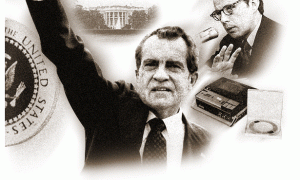 Pulling back now and looking at the four biggest “deep events” of the last four decades – the JFK assassination, the Watergate break-ins, Contragate, and now 9/11 – we see that their common denominator is drug-trafficking. Why is this? In the first three the deep state worked with assets outside civil society and beyond the rule of law. This is an important hypothesis, so I will repeat it: In the first three deep events, JFK, the Watergate break-ins, and Contragate, the deep state worked with assets outside civil society and beyond the rule of law.
Pulling back now and looking at the four biggest “deep events” of the last four decades – the JFK assassination, the Watergate break-ins, Contragate, and now 9/11 – we see that their common denominator is drug-trafficking. Why is this? In the first three the deep state worked with assets outside civil society and beyond the rule of law. This is an important hypothesis, so I will repeat it: In the first three deep events, JFK, the Watergate break-ins, and Contragate, the deep state worked with assets outside civil society and beyond the rule of law.
I want to suggest that in 9/11 the same thing happened again. The pattern moreover is that exhibited by the gizli devlet or deep state in Turkey, where a Parliamentary Investigation into the Susurluk Report concluded that the deep state had used the drug-trafficking Grey Wolves and fomented conflicts in the 1970s between the Turkish right and left. 37 The alliance between the deep state and drug traffickers has surfaced in other countries as well, including France, Italy, Mexico, Panama, Pakistan, Taiwan, and Japan.
Before I deal with the four American deep events, let me stress that, at the time of the previous events, their drug connections were vigorously denied. But they have since become clear. I will give a few examples. The Warren Report argued that Jack Ruby “was not involved with Chicago’s criminal element.” 38 But in 1979 the House Assassinations Committee assembled a report of over 1000 pages on his organized crime connections. It heard from a close Ruby associate, Lewis McWillie, that in 1959 the two men had visited the Trescornia camp in Cuba, and the “primary reason” for the visit was to meet Giuseppe deGeorge, one of the two top heroin couriers between Europe and Cuba. 39
In Deep Politics, and especially my recently reissued book Deep Politics Two, I discuss the importance of the drug traffic, as a unifying factor in the JFK case. It is a key, I have argued, to Jack Ruby’s special status with the Dallas Police Department. 40 When we look at those who in Mexico manipulated false Oswald story — to suggest that Oswald had been talking about assassination there — we again run into people with drug backgrounds. 41 A key example is Gilberto Alvarado, a Nicaraguan, whose story about Oswald and assassination was so serious that we know FBI Director Hoover discussed it on November 29 with Lyndon Johnson. 42 We now know that Alvarado, the source,” reported “directly to General Gustavo Montiel, Chief of the Intelligence Service of the Nicaraguan Army.” 43 Montiel was later denounced as a principal in a “massive car theft ring” run by Norwin Meneses, described in other CIA cables as “the kingpin of narcotics traffickers in Nicaragua.” 44
I have just finished a draft essay on Watergate, in which I argue that the Watergate burglars assembled by Howard Hunt, all but one Cubans, included at least two men with drug connections, and that they were being used under White House direction to restructure the drug traffic by eliminating, possibly even assassinating, old-time drug-traffickers who formed part of the so-called “French connection.” According to Edward J. Epstein, Hunt contacted a number of Cuban exiles and explained “that he had been authorized by the White House to recruit Cuban exiles into `hit teams’ which would be used ostensibly to assassinate narcotics dealers.” 45 Watergate burglar Frank Sturgis, after his arrest, said that in 1971 he too had joined Hunt in investigating the drug traffic that was entering the U.S. from Mexico, Paraguay, and Panama. 46 Sturgis claimed “that he undertook several missions for Hunt involving tracking narcotics, and he assumed that this was the nucleus of a new supranational police force that would be expanded after Nixon’s reelection.” 47
Then in the 1980s we encounter the involvement in drug-trafficking of some of the Nicaraguan Contra rebels, and more importantly of those who were supplying them with arms. This was emphatically denied at the time, and the two AP reporters who first broke the story both lost their jobs. But after two full-length books on the topic (Cocaine Politics, by myself and Jonathan Marshall, and Dark Alliance, by Gary Webb, the CIA Inspector-General was commissioned to investigate the matter. As the House Intelligence Committee later reported, “Volume II of the CIA IG report explains in detail the knowledge the CIA had that some contras had been, were alleged to be or were in fact involved or somehow associated with drug trafficking or drug traffickers.” 48
We need to stand back and consider the implications of this recurring phenomenon. In deep events the drug connection is at first vociferously denied; then it is belatedly admitted, but only after reporting journalists like Gary Webb have been driven from the journalistic profession. As a result, the role of drug-trafficking in deep events is like the elephant in the American political living room, rarely captured on film, and even more rarely discussed in polite discourse.
If 9/11 is similar to these preceding events, and I believe it is, we have to face the possibility that forces within the American deep state were again allied with drug traffickers. In this case the traffickers would be al Qaeda. And as the Toronto Star speculated in 2001, the alliance was not restricted to the deep state and al Qaeda, but also included elements from the financial overworld:
Earlier this month, the Guardian, a U.K. newspaper, reported that FBI agents had been told by the Bush administration to back off investigating members of the bin Laden clan living in the U.S. In September, the Wall Street Journal documented the lucrative business connections between the bin Laden family and senior U.S. Republicans, including the president’s father, George Bush Sr.
What are we to make of all this? One possible conclusion is that the bin Laden terror problem was allowed to get out of hand because bin Laden, himself, had powerful protectors in both Washington and Saudi Arabia. 49
In The Road to 9/11 I suggest that those protectors included U.S. oil companies eager to invest in Central Asia.
Drugs and Al Qaeda
How important were drugs in the financing al Qaeda? On this important question the British and American government have different positions. The 9/11 Commission Report, released in July 2004, went out of its way to say that While the drug trade was a source of income for the Taliban, it did not serve the same purpose for al Qaeda, and there is no reliable evidence that Bin Ladin was involved in or made his money through drug trafficking. 50
I submit that this claim will look extraordinary in ten years time. The British Parliament was told on October 4, 2001, that “al Qaeda’s activity includes substantial exploitation of the drug trade from Afghanistan.” 51 Only two weeks later, on August 2, 2004, Time magazine ran a major story about Haji Juma Khan …the kingpin of a heroin-trafficking enterprise that is a principal source of funding for the Taliban and al-Qaeda terrorists. According to a Western antinarcotics official, since slipping out of Afghanistan after U.S. forces released him, Khan has helped al-Qaeda establish a smuggling network that is peddling Afghan heroin to buyers across the Middle East, Asia and Europe, and in turn is using the drug revenues to purchase weapons and explosives.
This was after US Central Command reported that in December 2003 a dhow (an Arab sailing vessel) was intercepted near the Strait of Hormuz, carrying almost two tons of hashish valued at up to $10 million. There were “clear ties” between the shipment and al-Qaeda, the Centcom statement said.” 52 A few days later, on New Year’s Eve, a U.S. Navy vessel in the Arabian Sea “stopped a small fishing boat that was carrying no fish. After a search, [said] a Western antinarcotics official, `they found several al-Qaeda guys sitting on a bale of drugs.’” 53
The drug-trafficking Islamic Movement of Uzbekistan, like al Qaeda a by-product of CIA-ISI plotting in the 1980s, 54 is said to have come “under the influence of the Taliban and Al Qaeda” after 1998. 55 And Ralf Mutschke, Assistant Director of Interpol, told the US Congress that “according to some estimations IMU may be responsible for 70 % of the total amount of heroin and opium transiting through the area [of Central Asia].” 56 While such quantitative estimates remain uncertain, it is known that the IMU set up heroin labs in territories under its control. 57
In The Road to 9/11 I describe how in Azerbaijan, under oil company cover, veterans of CIA operations in Laos, like Richard Secord, Heinie Aderholt, and Ed Dearborn, set up an airline on the model of Air America which soon was “picking up hundreds of Mujahideen mercenaries from Afghanistan.” 58 The Arab Afghans’Azeri operations were financed with Afghan heroin.
Loretta Napoleoni has argued that there is an Islamist drug route of al Qaeda allies across North Central Asia, reaching from Tajikistan and Uzbekistan through Azerbaijan and Chechnya to Kosovo. 59 This leads us to the paradoxical fact that in 1998 Clinton came to the support of the al Qaeda-backed Kosovo Liberation Army (KLA). He did so even though “In 1998, the U.S. State Department listed the KLA … as an international terrorist organization, saying it had bankrolled its operations with proceeds from the international heroin trade and from loans from known terrorists like Osama bin Laden.” 60
Soon Mother Jones reported that in the six months since Washington enthroned the Kosovo Liberation Army in that Yugoslav province, KLA-associated drug traffickers have cemented their influence and used their new status to increase heroin trafficking and forge links with other nationalist rebel groups and drug cartels…. According to recent DEA statistics, Afghan heroin accounted for almost 20 percent of the smack seized in this country — nearly double the percentage taken four years earlier. Much of it is distributed by Kosovar Albanians. 61
It is now clear that the U.S. interventions in both Azerbaijan and Kosovo have beneficial for U.S. oil pipeline projects. BBC News announced in December 2004 that the $1.2 billion pipeline, south of a huge new US army base in Kosovo, has been given a go-ahead by the governments of Albania, Bulgaria, and Macedonia. 62
This leads in turn to the allegations of Sibel Edmonds, the Turkish-American former FBI translator, who has been prevented from speaking directly by an extraordinary court order, 63 but whose allegations have been summarized by Daniel Ellsberg:
Al Qaeda, she’s been saying to congress, according to these interviews, is financed 95% by drug money – drug traffic to which the US government shows a blind eye, has been ignoring, because it very heavily involves allies and assets of ours – such as Turkey, Kyrgyzstan, Tajikistan, Pakistan, Afghanistan – all the ‘Stans – in a drug traffic where the opium originates in Afghanistan, is processed in Turkey, and delivered to Europe where it furnishes 96% of Europe’s heroin, by Albanians, either in Albania or Kosovo – Albanian Muslims in Kosovo – basically the KLA, the Kosovo Liberation Army which we backed heavily in that episode at the end of the century.
In other words, the US is in effect, …permitting, or ‘not acting against,’ a heroin trade – which not only corrupts our cities and our city politics, AND our congress, as Sibel makes very specific – but is financing the terrorist organization that constitutes a genuine threat to us. And this seems to be a fact that is accepted by our top leaders, according to Sibel, for various geopolitical reasons, and for corrupt reasons as well. Sometimes things are simpler than they might appear – and they involve envelopes of cash. Sibel says that suitcases of cash have been delivered to the Speaker of the House, Dennis Hastert, at his home, near Chicago, from Turkish sources, knowing that a lot of that is drug money. 64
In 2005 Sibel Edmonds’ charges were partly aired in Vanity Fair. There it was revealed that Edmonds had had access to FBI wiretaps of conversations among members of the American-Turkish Council (ATC), about bribing elected US officials, and about “what sounded like references to large-scale drug shipments and other crimes.” 65
Once again, as in past deep events, Sibel Edmonds’ charges have been predictably ignored by the traditional media. 66 When I drew attention to her claims last November, I added that “I consider a top priority of the new Democratic Congress should be to give her charges a proper investigation for the first time. These charges are not just pertinent to 9/11 alone, but to the whole fabric of how this country is run.” A massive campaign to have Congressman Henry Waxman hold Hearings on them has however proven totally unproductive. His office has not even answered any of the deluge of emails he has received.
Edmonds has been corroborated by Huseyin Baybasin, another Turkish heroin kingpin now in jail in Holland, who after Susurluk went public with revelations about state corruption, later explained his role in his book Trial by Fire: “I handled the drugs which came through the channel of the Turkish Consulate in England.” But as he adds: “I was with the Mafia but I was carrying this out with the same Mafia group in which the rulers of Turkey were part.” Baybasin claimed he was assisted by Turkish officers working for NATO in Belgium. 67
Sibel Edmonds is not alone in alleging a 9/11-drugs connection. 68 There was also another witness, Indira Singh, who said publicly when speaking about 9/11: “I was told that if I mentioned the money to the drugs around 9/11 that would be the end of me.” 69
One thing we can say with confidence: the flow of Afghan heroin west through Turkey is a problem that can be traced back to the CIA’s complex involvement with a) Pakistan’s ISI intelligence service, b) with the drug-linked Bank of Credit and Commerce International (BCCI), and c) with Islamist Afghan mujahedeen like the drug-trafficker Gulbuddin Hekmatyar in the 1980s. 70
In fact the web of influence in America Edmonds describes corresponds closely to BCCI’s influence in the 1980s, when the head of BCCI used to boast to the leader of Pakistan about BCCI’s role in getting aid for Pakistan approved by the US Congress. 71
The ISI and its assets continued to be implicated in drug trafficking after the shutdown of BCCI in July 1991.
In an unusually frank interview in September 1994 – which he later denied – the former Pakistani prime minister, Nawaz Sharif, disclosed that General Aslam Beg, the army chief of staff, and the ISI boss [from 1990 to 1992], Lieutenant-General Asad Durrani, had [in early 1991] proposed raising money for covert foreign operations through large-scale drug deals….The ISI’s involvement in the Sikh separatist movement was recognized in a 1993 CIA report on Pakistan’s drug trade, which stated the heroin was being used to fund its purchases of arms.” 72
Prominent in ISI’s covert foreign operations at this time were the Arab Afghan terrorists supporting the drug trafficker Hekmatyar in Afghanistan, of whom I am about to say much more.
If the parallels with previous deep events hold true, then 9/11 will prove to be a collaboration between elements in the deep state and outside drug traffickers – in this case elements of al Qaeda. Such a thought is unthinkable if we know only what is in the mainstream media. It looks less unlikely when we look at past U.S. alliances with al-Qaeda-trained Islamists in Azerbaijan and Kosovo. And it seems even less unlikely when we examine the extraordinary case of Ali Mohamed, a top-level CIA asset who became the chief al Qaeda adviser on how to hijack airplanes. 73
8 ) Double Agents: Oswald and Ali Mohamed
As I have argued elsewhere, Ali Mohamed was a double agent, just as, I suggested 15 years ago, Lee Harvey Oswald was a double agent. (In my Watergate article I argue that Howard Hunt also was a double agent, working both for Nixon and somebody else. But I don’t have time to go into that here.)
In Deep Politics I explored at some length the possibility that Lee Harvey Oswald was a possible “double agent…trying to infiltrate the Dallas Cuban refugee group.” 74 I went on in Deep Politics (written in 1992) to make observations about Oswald as a double agent, observations that I now consider applicable to 9/11:
The preceding chapter considered the possibility that Oswald was associated with anti-Kennedy Cubans in order to investigate them on behalf of a federal agency. But we saw it alleged that Oswald was a double agent collaborating with some of these groups, either (as I suspect) because he or his handlers shared their goals [that is, anti-Kennedy goals], or possibly because he or his handlers had been “turned” by those they were supposed to investigate. Such a possibility was particularly likely with targets, like Alpha 66, about which the government itself was conflicted, of two minds. 75
It is necessary to recall that Alpha 66 in early 1963 conducted a series of raids, not just against Cuba, but against Soviet ships in Cuba. It was obviously trying to shipwreck the US-Soviet understanding on Cuba, thus to torpedo the whole Kennedy policy of détente with the Soviet Union. Unambiguously the raids met with the total disapproval of Robert Kennedy’s Justice Department (which cracked down on them and made a public announcement that they had to cease). At the same time there continued to be support for Alpha 66 from the CIA. 76
Double agents frequently become the stars both of the groups they penetrate and the government agencies to whom they report. Recently I have written about an analogous figure in al Qaeda: Ali Mohamed, who was Washington’s double agent inside al-Qaeda, and also a chief 9/11 plotter. 77 Triple Cross, a new book by Peter Lance, confirms that Ali Mohamed, one of al-Qaeda’s top trainers in terrorism and how to hijack airplanes, was an informant for the FBI, an asset of the CIA, and for four years a member of the US Army. 78 This special status explains why one of his protégés, El Sayyid Nosair, was able to commit the first al Qaeda crime in America, back in 1990, be caught along with his co-conspirators, and yet be dismissed by the police and FBI as (and these are actual quotes) a “lone deranged gunman” who “acted alone.”79
In fact, the FBI was aware back in 1990 that Mohamed had engaged in terrorist training on Long Island; yet it acted to protect Mohamed from arrest, even after one of his trainees had moved beyond training to an actual assassination. 80 Three years later, in 1993, Mohamed was actually detained in Canada by the RCMP. But he gave the RCMP the telephone number of his FBI handler in San Francisco, and after a brief call the RCMP released him. 81 This enabled Mohamed to fly later in the year to Nairobi, and begin to organize the eventual al Qaeda attacks on the US embassies in Africa.
Mohamed’s trainees were all members of the Al-Kifah Center in Brooklyn, which served as the main American recruiting center for the Makhtab-al-Khidimat, the “Services Center” network that after the Afghan war became known as al Qaeda. 82 The Al-Kifah Center was headed in 1990 by the blind Egyptian Sheikh Omar Abdel Rahman, who like Ali Mohamed had been admitted to the United States, despite being on a State Department Watch List. 83 As he had done earlier in Egypt, the sheikh “issued a fatwa in America that permitted his followers to rob banks and kill Jews.” 84
Ali Mohamed was training these Islamists to fight in Afghanistan. However the Soviets had totally withdrawn from Afghanistan by February 1989, and all of this training was going on in late 1989, at a time when the U.S. government, to paraphrase what was just said about 1963, was of two minds about what to do in Afghanistan.
The CIA were backing Gulbuddin Hekmatyar, a major heroin trafficker with his own heroin labs, to get rid of the secular, anti-Islamist government in Kabul, which the Russians left behind. 85
Meanwhile a State Department official, Edmund McWilliams, objected that “Pakistani intelligence and Hekmatyar were dangerous allies,” and that the United States was making an important mistake by endorsing ISI’s puppet Afghan interim government. 86 But Ali Mohamed’s training, both in Afghanistan and later around New York, was precisely designed to strengthen the Arab Afghans in Brooklyn who were allied with Hekmatyar. 87
Mohamed Ali’s trainees became involved in terrorist activities in other parts of the world. One of them, Anas al-Liby, became a leader in a plot against Libyan president Mu’ammar Qadaffi. Anas al-Liby was later given political asylum in Great Britain, despite suspicions that he was a high-level al Qaeda operative. 88 As the French authors Brisard and Dasquié point out, Qadaffii’s Libya in 1998 was the first government to ask Interpol to issue an arrest warrant for Osama bin Laden. They argue that Osama and al Qaeda elements were collaborating with the British MI-5 in an anti-Gaddafi assassination plot. 89
Another of Ali Mohamed’s trainees, Clement Rodney Hampton-El, accepted money from the Saudi Embassy in Washington to recruit Muslim warriors for Bosnia. 90 He was also allowed to go to Fort Belvoir, where an Army major gave him a list of Muslims in the US Army whom he could recruit. 91 Fort Belvoir was the site of the Army’s Land Information Warfare Activity (LIWA), whose Information Dominance Center was “full of army intelligence `geeks’” targeting Islamic jihadists. 92
Hampton-El’s recruiting for Bosnia was part of a larger operation. Numbers of Arab Afghans were trained for Bosnia, and later for the Kosovo Liberation Army, by Ayman al-Zawahiri, the top associate of Osama bin Laden in al Qaeda, and also a close ally of his fellow Egyptian, Ali Mohamed. 93 (Ali Mohamed had sworn allegiance to al-Zawahiri in 1984 while still in Egypt, and he twice arranged for al-Zawahiri to come to stay with him in California for fund-raising purposes.) 94
Meanwhile US intelligence veterans like Richard Secord helped bring Arab Afghans recruited by Hekmatyar to Azerbaijan, in order to consolidate a pro-western government there. 95 And in 1998 the US began bombing Kosovo in support of the Kosovo Liberation Army, some of whose cadres were both trained and supported in the field by al Qaeda’s “Arab Afghans.” 96
So Ali Mohammad’s activities intersected with US covert operations, and this fact appears to have earned him protection. 97 Jack Blum, former special investigator for the Senate Foreign Relations Committee, commented that one of the big problems here is that many suspects in the [1993] World Trade Center bombing were associated with the Mujahedeen. And there are components of our government that are absolutely disinterested in following that path because it leads back to people we supported in the Afghan war. 98
What agency would have been interested in protecting Mohamed? The CIA claimed to have ceased using him as an operative back in 1984. 99 Yet in 1988 Ali Mohamed flew from Fort Bragg to Afghanistan and fought there, while he was on the US Army payroll. His commanding officer didn’t like it, but Mohammad was apparently being directed by another agency. 100 Ten years later, in 1998, a confidential CIA internal survey concluded that it was “partly culpable” for the 1993 World Trade Center bombing, carried out by some of Ali Mohamed’s trainees. 101
After a plea bargain, Ali Mohamed eventually pleaded guilty in 2000 to having organized the bombings of US embassies in Africa, but as of 2006 he had still not yet been sentenced. 102
The Cover-Up Modus Operandi: He “Acted Alone”
Unambiguously Mohamed’s trainees became involved, almost immediately, in terrorism on US soil. In November 1990, three of Mohamed’s trainees conspired together to kill Meir Kahane, the racist founder of the Jewish Defense League. The actual killer, El Sayyid Nosair, was caught by accident almost immediately; and by luck the police soon found his two co-conspirators, Mahmoud Abouhalima and Mohammed Salameh, waiting at Nosair’s apartment. They found much more:
There were formulas for bomb making, 1,440 rounds of ammunition, and manuals [supplied by Ali Mohamed] from the John F. Kennedy Special Warfare Center at Fort Bragg marked “Top Secret for Training,” along with classified documents belonging to the U.S. Joint Chiefs of Staff. The police found maps and drawings of New York City landmarks like the Statue of Liberty, Times Square – and the World Trade Center. The forty-seven boxes of evidence they collected also included the collected sermons of blind Sheikh Omar, in which he exhorted his followers to “destroy the edifices of capitalism.” 103
All three had been trained by Ali Mohamed back in the late 1980s at a rifle range, where the FBI had photographed them, before terminating this surveillance in the fall of 1989. 104 The U.S. Government was thus in an excellent position to arrest, indict, and convict all of the terrorists involved, including Mohamed.
Yet only hours after the killing, Joseph Borelli, Chief of NYPD detectives, struck a familiar American note and pronounced Nosair a “lone deranged gunman.” 105 Some time later, he actually told the pressthat “There was nothing [at Nosair’s house] that would stir your imagination…..Nothing has transpired that changes our opinion that he acted alone.” 106
Borelli was not acting alone in this matter. His position was also that of the FBI, who said they too believed “that Mr. Nosair had acted alone in shooting Rabbi Kahane.” “The bottom line is that we can’t connect anyone else to the Kahane shooting,” an F.B.I. agent said.” 107
The initial reaction of the NYPD had been that Nosair was part of a conspiracy. 108 This impression was strengthened when a detective discovered that Borelli’s car had been moved after Nosair was arrested. As a result, according to the District Attorney prosecutor on the case, William Greenbaum, “We sensed a much bigger conspiracy, and we were sure that more than one person was involved.” 109
How then to explain the ultimate assurances that Nosair was a lone assassin? John Miller, who went on to be the assistant director of public affairs for the FBI, 110 blamed the culture of the NYPD: “The prevailing theory in the NYPD was, `Don’t make waves.’…So in the Nosair case, when Chief Borelli turned a blind eye to the obvious, he was merely remaining true to the culture of the NYPD.” 111 Miller’s unlikely explanation suppressed the relevant fact that the FBI, and eventually the District Attorney’s office which prosecuted the case, turned a blind eye to the obvious as well.
In the light of those 47 boxes of incriminating evidence, it is more likely that the US law enforcement system has a cover-up modus operandi or MO for dealing with a suspect who is marginally attached to intelligence operations, covert operations, even controversial operations which are opposed by other elements of the US government. 112 It is to tell the public (as they did earlier in the case of Oswald) that the suspect “acted alone.”
In thus limiting the case, the police and FBI were in effect protecting Nosair’s two Arab co-conspirators in the murder of a U.S. citizen. Both of them were ultimately convicted in connection with the first WTC bombing, along with another Mohamed trainee, Nidal Ayyad. The 9/11 Report, summarizing the convictions of Salameh, Ayyad, Abouhalima, and the blind Sheikh for the WTC bombing and New York landmarks plots, called it “this superb investigative and prosecutorial effort.” 113 It said nothing about the suppressed evidence found in Nosair’s house, including “maps and drawings of New York City landmarks,” which if pursued should have prevented both plots from developing.
And proper surveillance of this circle might have led investigators to the developing 9/11 plot as well. “Lance pinpoints how, in 1991, the FBI, knowing of a New Jersey mail box store with direct links to al-Qaida, failed to keep it under watch. Just six years later, two of the 9/11 hijackers got their fake IDs at the same location.” 114
The Repeated Modus Operandi for Cover-up
There is a repeated cover-up MO here which is observed in both the JFK assassination and the two WTC attacks. These deep events were not properly solved, because the designated principals in them could not be properly investigated. The pre-selected candidates were ones about whom the truth did not emerge, because of the candidates’ controversial involvement in previous covered-up operations. This ensured that an institutional cover-up, already in place, was extended to cover the new crime, even though it was a major one.
Oswald was one such pre-selected candidate. Those conspiratorially involved with Ali Mohamed and with 9/11 would also seem to fit the same description. That is what struck me most when I went back to compare the two meta-events: the killings of Kennedy and of Meir Kahane. Both Oswald and Nosair were quickly declared “lone” assassins, to protect someone or something else.
(Another man about whom the whole truth never emerged was Howard Hunt in Watergate, of whom President said to his aide Haldeman, “Hunt…will uncover a lot of things. You open that scab there’s a hell of a lot of things.” 115 This became the key to the cover-up that eventually cost Nixon his presidency. Fear of the Hunt “scab” apparently induced both Nixon and Helms to collude in ordering the FBI to suspend its interviews.) 116
I should make clear that with respect to 9/11, I have certain knowledge of only one fact: that there has been and continues to be a massive cover-up. I have not yet properly integrated the earlier cover-up in 1990 of Nosair’s associates, including Ali Mohamed, into my theory of what happened in 2001. I do however believe that the earlier cover-up is relevant to the later one, as exemplified by the strange treatment of the first WTC attack in the 9/11 Commission Report.
The similarity between the cover-up of Oswald in 1963 and Nosair in 1990 is striking. In both cases the truth about the predesignated culprit was unpursuable, because he was part of an operation too embarrassing to disclose. In the case of the Ali Mohamed trainees, this is a major scandal. These people could have been stopped back in 1990, before they attacked the World Trade Center. And they weren’t.
I conclude from this that it is a matter of paramount importance to learn more about these meta-events and their cover-ups. Because when we can understand what has happened before, we will be more able to deal with such a meta-event when it happens again. As I have said so many times, to understand any of these events in real depth, you have to look at what is on-going in all of them.
The traditional media seem determined, predictably, not to help in this matter. In November 2006, six weeks after Lance’s Triple Cross was released, Lexis Nexis recorded only one post-publication reference to it or to Ali Mohamed — the Toronto Sun of 11/19/06. 117 But there is no lack of interest on the Internet, where at the same time there were 43,600 hits on Triple Cross.) 118
The gravity of the Ali Mohamed matter is compounded by the context of the drug traffic. To get to the level where we can cope and deal with these recurring problems in our country, we will have to understand the continuity, and deal with it every time it surfaces.
Peter Dale Scott, born 11 January 1929, is a Canadian born, former English professor at the University of California, Berkeley, a former diplomat and a poet.
A son of the Canadian poet and constitutional lawyer F. R. Scott and painter Marian Dale Scott, he has been critical of American foreign policy since the era of the Vietnam War. Scott was a signatory in 1968 of the “Writers and Editors War Tax Protest” pledge, in which participants vowed to refuse tax payments in protest against the Vietnam War. He spent four years (1957–1961) with the Canadian diplomatic service. He retired from the UC Berkeley faculty in 1994.
Conclusions
Some of the similarities noted here are probably extrinsic to the events described. But others point to a strong common denominator between JFK and 9/11. We can mention in particular the following features of a common modus operandi:
1) The prior designation of a suspect or suspects. These had a past intelligence involvement, which obstructed proper investigation of them, and of the deep events attributed to them. In both cases the suspects either were or involved double agents, with life stories or legends on two different levels.
2) The laying of a paper trail. This was strong enough to ensure that investigation would lead promptly to the designated suspects.
3) The immediate attribution of the deep event to the designated suspects.
4) The announcement that the suspect or suspects acted alone, even when there was clear evidence to show this was not true. 119
5) Both deep events involved experienced criminals, drawn from the world of organized drug trafficking.
As I prepared this list of similarities for a June 2007 lecture in Vancouver, I had to recognize in myself a profound resistance to acknowledging this pattern. I didn’t want to accept this indication that there might be a hidden Force X intervening to affect our history at least twice over a forty-year period.
So after the lecture I laid this paper to one side. I shared it only with a few intimate correspondents for their opinions, hoping that they would persuade me to discount the pattern.
And then, six weeks later, it struck me that I had suppressed, even to myself, the most obvious and relevant similarities of all between JFK and 9/11:
6) Both events opened the path to major wars (Vietnam in 1964-65, Afghanistan followed by Iraq in 2001), upon which a small but powerful group were already intent. In the case of Vietnam, plans for escalating the war into North Vietnam were already approved at a DOD/CIA Conference in Honolulu on November 20, 1963, even though Kennedy had never seen these plans and would in all probability not have approved them. (He had already set in motion plans to withdraw the bulk of U.S troops from Vietnam by late 1965.) 120 The Taliban government of Afghanistan had allegedly already been threatened with a potential “carpet of bombs” by the Bush Administration in 2001, before the justifying events of September 11. 121
If this founding similarity is recognized, two more follow quickly:
7) Both wars were followed by explosive increases in opium and heroin production. Thanks to the Vietnam War, opium production in the Golden Triangle expanded from about 80 tons in the early 1950s, to 300-400 tons in 1963, to a peak of 1,200 tons a year. 122 The U.S. invasion of Afghanistan, accomplished with the aid of professional drug traffickers, has seen an increase in Afghan opium production from 3,276 metric tonnes of opium in 2000, and 185 tonnes in 2001 (the year of the Taliban prohibition) to a new record high of 6,610 metric tonnes in 2006, a 43 percent increase over 2005. 123 As a result Afghanistan’s share of global opium production increased from 70 percent in 2000 to 82 percent in 2006. 124 U.N. figures to be released in September 2007 are expected to show that Afghanistan now accounts for 95 percent of the world’s crop. 125
8) Both wars served the interests of international oil companies, and prior to the relevant deep events had been actively lobbied for by them. Before 1963 one of the most active lobbyists for U.S. military engagement in Southeast Asia had been William Henderson, adviser on International Affairs to Socony Mobil and an officer of American Friends of Vietnam. 126 The threats delivered to the Taliban before 9/11 were in support of Unocal’s desire to build oil and gas pipelines through the country from Turkmenistan to Pakistan. 127
Elsewhere I have looked at these recurring overlapping patterns of drugs, oil, and war, in a book of the same name. It is a tribute to force of psychological denial that I so long repressed their relevance to the subject now being discussed: why certain events in the assassination of John F. Kennedy replicated themselves in the events of 9/11.
I invite readers to consider and investigate this pattern. As I also said in Vancouver in June 2007, our country faces the risk of another 9/11 incident, followed by another military engagement that Cheney has lobbied for: in Iran.
Footnotes:
1 In this paper the term “Watergate” will refer to the initial Watergate break-ins only, to the exclusion of all the other dirty tricks that were ultimately traced to the Nixon House.
2 Adrian Gatton, “The Susurluk Legacy,” http://adriangatton.com/archive/1990_01_01_archive.html. Both Catli and the terrorist Grey Wolves network from which he emerged had global intelligence connections. In 1978 “Catli linked up with notorious Italian right-wing terrorist Stefano Delle Chiaie and together they traveled to Latin America and the United States” (Daniele Ganser, NATO’s Secret Armies: Operation Gladio and Terrorism in Western Europe [London: Frank Cass Publishers, 2005], 237-38.
3 Martin A. Lee, “On the Trail of Turkey’s Terrorist Grey Wolves,” ConsortiumNews, 1997, http://www.consortiumnews.com/archive/story33.html.
4 Even the vocabularies of the old and new media diverge. A Lexis Nexis search in December 2006 for the word “parapolitics” in major newspapers yielded five entries, only two of them from the United States. The same search on Google yielded 86,100 hits. Meanings of “parapolitics”: 1) “A system or practice of politics in which accountability is consciously diminished” (Peter Dale Scott, The War Conspiracy [New York: Bobbs Merrill, 1972], 171). 2) The intellectual study of parapolitical interactions between public states and other forms of organized violence. See Robert Cribb and Peter Dale Scott, “Introduction,” in Eric Wilson and Tim Lindsey (eds.), Government of the Shadows: Parapolitics and Criminal Sovereignty (London: Pluto, 2007).
5 The dip and recovery of the stock market on November 22, 1963 were given prominent attention in Lincoln Lawrence, Were We Controlled.
6 Petr Dale Scott, “The Dallas Conspiracy” (unpublished ms., 1973), Ch. III, 36. Cf. Joan Mellen, “The Kennedy Assassination and the Current Political Moment,” http://www.joanmellen.net/truth-2.html.
7 Paul Thompson, Terror Timeline, ; http://www.cooperativeresearch.org/timeline.jsp?timeline=complete_911_timeline&before_9/11=insiderTrading.
8 “We believe it was by design,” J. Gary Shaw writes in his book Cover-Up, “that Secretary of State (Dean) Rusk, Treasury Secretary Douglas Dillon, Interior Secretary Stewart Udall and Labor Secretary W.W. Wirtz, as well as other administration officials like White House Press Secretary (Pierre) Salinger, were trapped in an airplane over the Pacific Ocean at such a critical time.” 1 (The other two Cabinet members aboard were Secretary of Commerce Luther Hodges and Secretary of Agriculture Orville Freeman. (http://four.fsphost.com/crevmore/acretoky.htm)
9 Thompson, Terror Timeline, 400.
10 FBI HQ Supervisor W. Marvin Gheesling was censured and transferred to Detroit “for removing stop on Oswald in Ident on 10/9/63” (NARA RIF #124-10371-10033; FBI file 62-117290-Admin Folder-V3, Response to SSC re Gayle Memo 9/30/64, 21, http://www.maryferrell.org/mffweb/archive/viewer/showDoc.do?absPageId=300123). Cf. John Newman, “Oswald and the Mexico City Tapes,” JFK Lancer Conference, Dallas, November 19, 1999, 3, http://www.jfklancer.com/backes/newman/newman_3.html: “Now, the day before the Mexico City story hits the FBI they cancel the flash on Oswald. This is an example of what I’m talking about, dimming the switches.”
11 For details see Terrorist Timeline under “Maltbie,” http://www.cooperativeresearch.org/entity.jsp?entity=michael_maltbie: “RFU chief Dave Frasca stops the Minneapolis office from pursuing a criminal warrant (see August 21, 2001); When French authorities discover that Moussaoui is connected to the Chechen rebels, RFU agent Mike Maltbie insists that the FBI representative in Paris go through all telephone directories in France to see how many Zacarias Moussaouis live there (see August 22, 2001); When RFU agent Rita Flack, who is working on the Moussaoui case, reads the Phoenix memo suggesting that bin Laden is sending pilots to the US for training, she apparently does not tell her colleagues about it, even though it was addressed to several of them including Frasca (see July 10, 2001 and August 22, 2001); The RFU does not provide the relevant documentation to attorneys consulted about the request. In particular, Flack does not tell them about the Phoenix memo, even though one of the attorneys will later say she asked Flack if anyone is sending radical Islamists to the US to learn to fly (see August 22-28, 2001).”
12 Newsday, March 21, 2006, http://www.newsday.com/news/nationworld/nation/ny-mous214670355mar21,0,2844591.story.
13 9/11 Commission Report, 269-72; Lawrence Wright, The Looming Tower: Al-Qaeda and the Road to 9/11 (New York: Knopf, 2006), 339-44.
14 Thompson, Terror Timeline, 101.
15 http://www.cooperativeresearch.org/context.jsp?item=a1299surprisingpresence; citing Shaffer testimoiny to US Congress, 2/15/2006. Government Security News, August 2005.
16 E.g. Gaeton Fonzi, The Last Investigation (New York: Thunder’s Mouth Press, 1993), esp. 141-42; John Newman, Oswald and the CIA (New York: Carroll & Graf, 1995), 318-419; Lamar Waldron with Thom Hartmann, Ultimate Sacrifice: John and Robert Kennedy, the Plan for a Coup in Cuba, and the Murder of JFK (New York: Carroll and Graf, 2006), 531-46.
17 Particularly suggestive in this respect is RFU Agent Michael Maltbie’s weakening of a proposed FISA application by editing it and removing a statement by a CIA officer that Chechen rebel leader Ibn Khattab was closely connected to Osama bin Laden (“Michael Maltbie,” Terror Timeline, August 28, 2001, http://www.cooperativeresearch.org/entity.jsp?entity=michael_maltbie.
18 Coleen Rowley Report, 5; quoted in Steve Moore, “The FBI’s Radical Fundamentalist Unit in Washington D.C.,” Global Research, August 18, 2002, http://www.globalresearch.ca/articles/MOO208B.html.
19 Ahmed Rashid, “America’s Bad Deal With Musharraf, Going Down in Flames,” Washington Post, June 17, 2007, http://www.washingtonpost.com/wp-dyn/content/article/2007/06/15/AR2007061502073.html: “The roots of the crisis go back to the blind bargain Washington made after 9/11 with the regime that had heretofore been the Taliban’s main patron: ignoring Musharraf’s despotism in return for his promises to crack down on al-Qaeda and cut the Taliban loose. Today, despite $10 billion in U.S. aid to Pakistan since 2001, that bargain is in tatters; the Taliban is resurgent in Afghanistan, and al-Qaeda’s senior leadership has set up another haven inside Pakistan’s chaotic border regions.”
20 Mark H. Gaffney, “The 911 Mystery Plane,” http://www.rense.com/general76/missing.htm; citing U.S. Department of Defense, News Transcript, “Secretary Rumsfeld Interview with the Washington Post,” January 9, 2002, posted at http://www.defenselink.mil/transcripts/2002/t02052002_t0109wp.html; Joe Dejka, “Inside STRATCOM on September 11: Offutt exercise took real-life twist,” Omaha World-Herald, February 27, 2002.
21 Assistant Attorney-General Nicholas Katzenbach later testified that he was “astounded” that Dulles did not at least share with the other commissioners what he knew about the CIA’s involvement in relevant assassination plots at the time (Peter Grose, Gentleman Spy: The Life of Allen Dulles (Boston: Richard Todd/Houghton Mifflin, 1994), 552; citing House Select Committee on Assassinations, Investigation of the Assassination of President John F. Kennedy, Vol. 3, 699-71.
22 Scott, Deep Politics, 249.
23 Scott, Deep Politics, 258.
24 Emery, Watergate, 111-12. In addition Hunt deposited photographic evidence of the Fielding break-in at CIA headquarters, which surely can have served no other purpose than to leave an incriminating trail.
25 Haldeman, The Ends of Power, 30.
26 Newsday, April 17, 2006, http://www.newsday.com/news/nationworld/nation/ny-uslugg0417,0,3743892.story?coll=ny-homepage-bigpix2005.
27 Newsday, April 17, 2006. The belated airing of the Flagg story in 2006 has aroused suspicions that it was invented to allay the many earlier questions raised about how the FBI learned the names of the alleged hijackers so quickly (see next section). FBI Director Robert Mueller told the Commonwealth Club of California on April 19, 2002 that “The hijackers also left no paper trail. In our investigation, we have not uncovered a single piece of paper – either here in the U.S. or in the treasure trove of information that has turned up in Afghanistan and elsewhere – that mentioned any aspect of the September 11th plot” (http://www.fbi.gov/pressrel/speeches/speech041902.htm). But CNN had reported on September 28, 2001, that “among [Atta’s] belongings they also found the names and phone numbers of possible associates;” (http://transcripts.cnn.com/TRANSCRIPTS/0109/28/ltm.01.html); and that this “information compliments the release of photos of the suspected hijackers” (http://edition.cnn.com/TRANSCRIPTS/0109/28/ltm.15.html). I am grateful to Jon Gold for bringing these matters to my attention.
28 United States of America vs. Zacarias Moussaoui, U.S. District Court for the Eastern District of Virginia, Alexandria Division, www.usdoj.gov/ag/moussaouiindictment.htm, items 88, 92.
29 WR 5, 17 WH 397 (Transcript of Dallas Police Channel One, before 12:45 PM, 11/22/63).
30 E.g. CIA Cable 74830 of 10 Oct 63 to Mexico City, http://www.maryferrell.org/mffweb/archive/viewer/showDoc.do?docId=30335&relPageId=2; reproduced in John Newman, Oswald and the CIA (New York: Carroll & Graf, 1995), 512.
31 Manning Clements FBI FD-302 of 11/23/63; in Warren Report, 614.
32 WR 5. Brennan subsequently failed to pick out Oswald in a police line-up (Sylvia Meagher, Accessories After the Fact [Mary Ferrell Foundation Press, 2006], 10-13, 78n).
33 Richard A. Clarke, Against All Enemies: Inside America’s War on Terrorism (New York: Simon & Schuster, 2004), 13-14.
34 William Norman Grigg, “Did We Know What Was Coming?” New American, 3/11/02, http://www.thenewamerican.com/tna/2002/03-11-2002/vo18no05_didweknow.htm.
35 Peter Lance, Triple Cross (New York: Regan/HarperCollins, 2006), 383.
36 Newsday, April 17, 2006.
37 Human Rights Foundation of Turkey (HRFT): Annual Report 1997; Martin A. Lee, “On the Trail of Turkey’s Terrorist Grey Wolves,” ConsortiumNews, 1997, http://www.consortiumnews.com/archive/story33.html.
38 Warren Report, 785.
39 Scott, Deep Politics, 180-81
40 Peter Dale Scott, Deep Politics and the Death of JFK (Berkeley: University of California Press, 1998), 70-71, 132, 136-38.
41 Scott, Deep Politics Two, 130-36.
42 Michael Beschloss, ed., Taking Charge: The Johnson White House Tapes, 1963-1964 (New York: Simon & Schuster, 1997), 53. In a memorandum of the same day Hoover noted that it was Johnson, not Hoover, who initiated the call (3 AH 476). The call logs of the LBJ Library (available on its website) indicate that the call was from Hoover to Johnson.
43 Attachment to CIA Memo of 12 December 1963 from DDP to FBI, “Mexican Interrogation of Gilberto Alvarado;” NARA #104-10018-10043.
44 Webb, Dark Alliance, 55-56 (Montiel); Scott, Drugs, Contras, and the CIA, 15 (“kingpin”).
45 Epstein, Agency of Fear, 205.
46 Scott, Hoch, Stetler, The Assassinations, 402.
47 Epstein, Agency of Fear, 205n
48 House Select Committee on Intelligence on Report of CIA Inspector-General Frederick Heitz, quoted in Robert Parry, “CIA Admits Tolerating Contra- Cocaine Trafficking in 1980s,” ConsortiumNews.com, June 8, 2000, http://www.consortiumnews.com/2000/060800a.html.
49 Toronto Star, November 27, 2001; quoted with discussion in Scott, The Road to 9/11, 176.
50 9/11 Report, 171. I find this statement one-sided and misleading, but less so than the opposite claim of Yossef Bodansky: “The annual income of the Taliban from the drug trade is estimated at $8 billion. Bin Laden administers and manages these funds – laundering them through the Russian mafia… (Yossef Bodansky, Bin Laden: The Man Who Declared War on America [New York: Random House/Prima, 2001], 315).
51 “Evidence Presented to the British Parliament, 4th October 2001,” Los Angeles Times, 10/4/01. Cf. e.g. Minneapolis Star-Tribune, 9/30/01; Asia Times, 12/8/01; New York Times, 10/4/01, 10/11/01;
San Francisco Chronicle, 10/4/01. For further documentation, see Peter Dale Scott, Drugs, Oil, and War: The United States in Afghanistan, Colombia, and Indochina (Lanham, MD: Rowman & Littlefield, 2003), 32, 36.
52 US `seizes al-Qaeda drugs ship’,” BBC News, 12/19/03.
53 Time, August 2, 2004.
54 Robert Dreyfuss, Devil’s Game: How the United States Helped Unleash Fundamentalist Islam (New York: Metropolitan Books/Henry Holt, 2005), 287: “There is no question that the Casey-ISI actions aided the growth of a significant network of right-wing Islamist extremists [including] the Islamic Movement of Uzbekistan.”
55 Rohan Gunaratna, Inside Al Qaeda: Global Network of Terror (New York: Columbia UP, 2002), 170. Cf. New York Times, 5/3/01: “There are sketchy but widely circulated stories that the [IMU] militants are trained by the Taliban and receive money from drug traffickers and from Osama bin Laden, the exiled Saudi accused of leading an international terrorist group.” Cf. Guardian, 5/17/05 “Both the US and Britain link the IMU to al-Qaida, and the Afghan heroin trade.”
56 “The Threat Posed by the Convergence of Organized Crime, Drugs Trafficking and Terrorism,” Written Testimony of Ralf Mutschke, Assistant Director, Criminal Intelligence Directorate, International Criminal Police Organization – Interpol General Secretariat, before a hearing of the Committee on the Judiciary, Subcommittee on Crime, December 13, 2000, http://judiciary.house.gov/Legacy/muts1213.htm. Rashid quotes from the last sentence.
57 Wall Street Journal, 5/3/01.
58 Thomas Goltz, Azerbaijan Diary: A Rogue Reporter’s Adventures in an Oil-Rich, War-Torn, Post-Soviet Republic (Armonk, NY: M. E. Sharpe, 1999), 272-75. Richard Secord was allegedly attempting also to sell Israeli arms, with the assistance of Israeli agent David Kimche, another associate of Oliver North. The mujahedin were recruited in Afghanistan by Gulbuddin Hekmatyar, the leading recipient of CIA assistance in Afghanistan in the 1980s, and most recently a leader of the al Qaeda-Taliban resistance to the US and its client there, Hamid Karzai. See Scott, Drugs, Oil, and War, 7, 8, 20.
59 Loretta Napoleoni, Terror Incorporated: Tracing the Dollars behind the Terror Networks (New York: Seven Stories Press, 2005), 90-97: “[IMU leader] Namangiani’s networks in Tajikistan and in Central Asia were used to smuggle opium from Afghanistan. It was partly thanks to Namangiani’s contacts in Chechnya that heroin reached Europe” (91)….. “It was thanks to the mediation of Chechen criminal groups that the KLA and the Albanian mafia managed to gain control of the transit of heroin in the Balkans” (96). Napoleoni does not mention Azerbaijan, which however lies between Uzbekistan and Chechnya.
60 “KLA Funding Tied To Heroin Profits,” Washington Times, 5/3/99.
61 Peter Klebnikov, “Heroin Heroes,” Mother Jones, Jan.-Feb. 2001. I have written elsewhere of how what I called a meta-group affiliated with Adnan Khashoggi took advantage of the NATO bombing of Kosovo to consolidate the Kosovar drug route via Abkhazia (and Turkey). See “The Far West Drug Meta-Group — Part 1.” Article for Nexus: New Times Magazine, 13.3, June-July 2006, 25-31, 82, http://www.nexusmagazine.com/articles/DrugMetaGroup1.html. This version is without footnotes; go to “The Global Drug Meta-Group: Drugs, Managed Violence, and the Russian 9/11” (Lobster, 10/29/05, http://lobster-magazine.co.uk/articles/global-drug.htm, for a footnoted version. In February 2006 a member of the meta-group confirmed part of my hypothesis: namely, that the so-called “Pristina dash” of Russian troops to seize Kosovo’s main airport had been prepared for by his meta-group colleague Vladimir Filin (Anton Surikov, Pravda-info, 2/8/06, http://forum.msk.ru/material/power/7495.html; cf. http://www.left.ru/burtsev/ops/prishtina.phtml).
62 BBC News, 12/28/04. Those who charged that such a pipeline was projected were initially mocked but gradually vindicated (Guardian, 1/15/01; Scott, Drugs, Oil, and War, 34).
63 On October 18, 2002, Attorney General John Ashcroft invoked the State Secrets Privilege in order to prevent disclosure of the nature of Edmonds’ work on the grounds that it would endanger national security.
64 Daniel Ellsberg with Kris Welch, KPFA, 8/26/06, http://wotisitgood4.blogspot.com/2006/10/ellsberg-hastert-got-suitcases-of-al.html.
65 Vanity Fair, September 2005. According to the ATC web site, “As one of the leading business associations in the United States, the American-Turkish Council (ATC) is dedicated to effectively strengthening U.S.-Turkish relations through the promotion of commercial, defense, technology, and cultural relations. Its diverse membership includes Fortune 500, U.S. and Turkish companies, multinationals, nonprofit organizations, and individuals with an interest in U.S.-Turkish relations.” It is thus comparable to the American Security Council, whose activities in 1963 are discussed in Scott, Deep Politics, e.g. 292.
66 In December 2006 a Lexis Nexis search of major newspapers for “Sibel Edmonds” and “drug” produced no relevant results. A similar search on Google yielded 99,100.
67 “The Susurluk Legacy,” By Adrian Gatton, Druglink Magazine, Nov/Dec 2006, http://adriangatton.com/archive/1990_01_01_archive.html
68 The most sensational charge of a direct 9/11-drug connection is made by Daniel Hopsicker in his self-published book Welcome to Terrorland. “Hopsicker is still researching the three Huffman-trained 9/11 pilots, who he says had financial, drug-trafficking and military intelligence ties to the U.S. government. He is developing suspicions that Atta and the entire school were involved with Osama bin Laden in heroin trafficking. Hopsicker reports that on July 25, 2000, the DEA in Orlando discovered more than 30 pounds of heroin inside a Learjet owned by Wally Hilliard, owner of Huffman Aviation. Earlier that month, on July 3, Atta and Marwan Al-Shehri had started flight lessons at Huffman. Hopsicker claims it’s not a coincidence that Atta was allegedly importing heroin with Hilliard’s help, selling Afghanistan’s notorious opium and heroin to finance the Taliban. Hilliard would not be interviewed for this story. `The apparatus that Osama bin Laden set into place along with the CIA back in the ’80s, still exists,’ Hopsicker says. `The FBI is protecting an operation set in place back in the ’80s…a money-laundering device to funnel money to the Afghan Mujahedeen and to flood this country with heroin’” (Sander Hicks, Long Island Press, 2/26/04, http://www.911citizenswatch.org/modules.php?op=modload&name=News&file=article&sid=82). Hopsicker’s charges are reported, but only minimally corroborated, in Sander Hicks, The Big Wedding (Vox Pop #2, 2005), 31-39. Most other researchers, myself included, are looking for more independent corroboration.
69 Indira Singh testimony, 9/11 Citizen’s Commission, 128, http://www.justicefor911.org/September-Hearings.doc. Indira Singh was a one-time senior employee of J.P. Morgan, who was fired after she shared her concerns about an Arab-financed contracting firm with her bank and the FBI.
70 Scott, Drugs, Oil, and War, 27-58.
71 Peter Truell, and Larry Gurwin, False Profits: The Inside Story of BCCI, the World’s Most Corrupt Financial Empire (Boston: Houghton Mifflin, 1992), 132.
72 Michael Griffin, Reaping the Whirlwind: The Taliban Movement in Afghanistan (London: Pluto Press, 2001), 149-50; Washington Post, 9/12/94. A13.
73 Scott, The Road to 9/11, 150-58, etc.
74 Scott, Deep Politics and the Death of JFK, 252; quoting Lucille Connell, 26 WH 738.
75 Scott, Deep Politics and the Death of JFK, 257.
76 Hinckle and Turner, Deadly Deceits, 173-76. Cf. Hancock, Someone Would Have Talked, 177-78.
77 Peter Dale Scott, “The Background of 9/11: Drugs, Oil, and US Covert Operations,” in David Ray Griffin and Peter Dale Scott (eds.), 9/11 & American Empire: Intellectuals Speak Out (Northampton, MA: Olive Branch Press, 2006), 73-78. For updates, see my website at http://socrates.berkeley.edu/~pdscott/q.html.
78 Lance, Triple Cross, xxvii, etc.
79 Newsday, 11/8/90; quoted in Peter Lance, 1000 Years for Revenge35; New York Times, 12/16/90. (New York: Regan Books/ Harper Collins, 2003),
80 Lance, 1000 Years for Revenge, 29-37.
81 Lance, Triple Cross, 123-25.
82 Robert Dreyfuss, Devil’s Game: How the United States Helped Unleash Fundamentalist Islam (New York: Metropolitan Books/Henry Holt, 2005), 278; John K. Cooley, Unholy Wars: Afghanistan, America, and International Terrorism (London: Pluto Press, 1999), 87-88; Lance, 1000 Years for Revenge, 29-31; Independent, 11/1/98.
83 Rahman was issued two visas, one of them “by a CIA officer working undercover in the consular section of the American embassy in Sudan” (Peter L. Bergen, Holy War, Inc.: Inside the Secret World of Osama bin Laden [New York: Free Press, 2001], 67). FBI consultant Paul Williams writes that Ali Mohamed “settled in America on a visa program controlled by the CIA” (Paul L. Williams, Al Qaeda: Brotherhood of Terror [[Upper Saddle River, NJ]: Alpha/ Pearson Education, 2002], 117). Others allegedly admitted, despite being on the State Department watch list, were Mohamed Atta and possibly Ayman al-Zawahiri (Nafeez Mosaddeq Ahmed, The War on Truth: 9/11, Disinformation, and the Anatomy of Terrorism [Northampton, MA: Olive Branch Press, 2005], 205, 46).
84 Wright, The Looming Tower, 177.
85 Steve Coll, Ghost Wars (New York: Penguin Press, 2004), 195. In retrospect, the decision to back Hekmatyar against Najibullah appears to have been disastrous. As Ahmed Rashid predicted accurately in 1990, “If Afghanistan fragments into warlordism, the West can expect a flood of cheap heroin that will be impossible to stop …Afghanistan’s President Najibullah has skillfully played on Western fears of a drugs epidemic by repeatedly offering co-operation with the DEA and other anti- narcotic agencies, but the West, which still insists on his downfall, has refused. If President [George Herbert] Bush and Margaret Thatcher continue to reject a peace process, they must prepare for an invasion of Afghan-grown heroin in Washington and London” (Ahmed Rashid, “Afghanistan heroin set to flood West,” Independent (London), 3/25/90: “In early 1988 the State Department negotiators had been preparing to accept an end to CIA assistance.” They then reversed themselves and held out for a matching of Soviet and CIA support to the two factions. Apparently the policy shift was motivated by an unscripted remark by Reagan to a television interviewer (Coll, Ghost Wars, 176-77).
86 Coll, Ghost Wars, 196; cf. 197-202; Barnett Rubin, The Fragmentation of Afghanistan (New Haven: Yale UP, 2002), 251. McWilliams’ argument found support among mid-level State Department officials in Washington; “Still, the more State Department officials mouthed the McWilliams line, the more Langley argued the contrary” (Coll, Ghost Wars, 197).
87 Cf. Lance, Triple Cross, 20, 66.
88 Lance, Triple Cross, 104-05. In May 2000 al-Liby’s house in Britain was raided; and the police discovered an al Qaeda terror manual which was largely written and translated by Ali Mohamed.
89 Brisard and Dasquié, Forbidden Truth, 97-102, 155-59. A leader in the plot was Anas al-Liby, who was later given political asylum in Great Britain, despite suspicions that he was a high-level al Qaeda operative. He was trained in terrorism by the triple agent Ali Mohamed, while Mohamed was still on the payroll of the U.S. Army (Peter Lance, Triple Cross: How Bin Laden’s Chief Security Adviser Penetrated the CIA, the FBI, and the Green Berets [New York: Regan, 2006], 104; see also Chapter IX).
90 United States v. Omar Ahmad Ali Abdel Rahman et al., Federal Court, SDNY, 15629-30, 15634-35, 15654, 15667-68, 15671, 15673; Kohlmann, Al-Qaida’s Jihad, 72-74; J.M. Berger, “Al Qaeda Recruited U.S. Servicemen: Testimony Links Plot To Saudi Gov’t,” Intelwire.com, http://intelwire.egoplex.com/hamptonel010604.html.
91 United States v. Omar Ahmad Ali Abdel Rahman et al., Federal Court, SDNY, 15629-30, 15634-35, 15654, 15667-68, 15671, 15673; Kohlmann, Al-Qaida’s Jihad, 72-74; J.M. Berger, “Al Qaeda Recruited U.S. Servicemen: Testimony Links Plot To Saudi Gov’t,” Intelwire.com, http://intelwire.egoplex.com/hamptonel010604.html. In my talk, I said erroneously that Hampton-El was recruiting for Afghanistan.
92 Lance, Triple Cross, 331.
93 Marcia Christoff Kurop, “Al Qaeda’s Balkan Links,” Wall Street Journal, 11/1/01: “For the past 10 years…Ayman al-Zawahiri has operated terrorist training camps [and] weapons of mass destruction factories throughout Albania, Kosovo, Macedonia, Bulgaria, Turkey and Bosnia.”
94 Lance, Triple Cross, 11, 194-98.
95 Peter Dale Scott, “The Background of 9/11: Drugs, Oil, and U.S. Covert Operations,” in David Ray Griffin and Peter Dale Scott (eds.), 9/11 & American Empire, 75-76.
96 Yossef Bodansky, Bin Laden: The Man Who Declared War on America (Roseville: Prima, 2001), 298, 397-98.
97 Cf. Robert Friedman, Village Voice, 3/30/93: “In the aftermath of the bombing, many are wondering why there wasn’t a comprehensive, wide-ranging investigation of Meir Kahane’s murder. One possible explanation is offered by a counterterrorism expert for the FBI. At a meeting in a Denny’s coffee shop in Los Angeles a week after the Kahane assassination, the 20-year veteran field agent met with one of his top undercover operatives, a burly 33-year-old FBI contract employee who had been a premier bomber for a domestic terrorist group before being `turned’ and becoming a government informant. `Why aren’t we going after the sheikh [Abdel Rahman]?’ demanded the undercover man. `It’s hands-off,’ answered the agent. `Why?’ asked the operative. `It was no accident that the sheikh got a visa and that he’s still in the country,’ replied the agent, visibly upset. `He’s here under the banner of national security, the State Department, the NSA [National Security Agency], and the CIA.’”
98 Robert I. Friedman, Village Voice, 3/30/93.
99 Lance, Triple Cross, 16.
100 Lance, Triple Cross, 43: “Ali Mohamed defied his commanding officer and prepared to go [to Afghanistan] anyway. At that point, it seems clear that he was serving two sets of masters at Bragg.”
101 Andrew Marshall, Independent, 11/1/98.
102 Lance, Triple Cross, 3, 7. The CIA has shown through the years the lengths it will go to, to prevent having its sometime assets testify in open court. Cf. Scott and Marshall, Cocaine Politics, 36; Peter Dale Scott, Drugs, Contras and the CIA: Government Policies and the Cocaine Economy. An Analysis of Media and Government Response to the Gary Webb Stories in the San Jose Mercury News (1996-2000) (Los Angeles: From the Wilderness Publications, 2000), 39-40, etc.
103 Lance, 1000 Years, 34.
104 Lance, 1000 Years, 31; Peter Lance, Cover Up: What the Government Is Still Hiding about the War on Terror (New York: Regan Books/ HarperCollins, 2004), 25.
105 Newsday, 11/8/90; quoted in Lance, 1000 Years, 35.
106 New York Times, 11/8/90; Robert I. Friedman, Village Voice, 3/30/93.
107 New York Times, 12/16/90.
108 “Nosair, the NYPD had already learned, had apparently not acted alone…Lieutenant Eddie Norris…seemed to be looking at a conspiracy involving three and possibly more assassins.” (John Miller and Michael Stone, with Chris Mitchell, The Cell [New York: Hyperion, 2003), 43].
109 Lance, Triple Cross, 59.
110 Lance, Triple Cross, 115.
111 Miller et al., The Cell, 44-45.
112 John Miller, who went on to be the assistant director of public affairs for the FBI (Lance, Triple Cross, 115), blames the culture of the NYPD: “The prevailing theory in the NYPD was, `Don’t make waves.’…So in the Nosair case, when Chief Borelli turned a blind eye to the obvious, he was merely remaining true to the culture of the NYPD” (The Cell, 44-45.) Miller’s unlikely explanation suppresses the relevant fact that the FBI turned a blind eye to the obvious as well.
113 9/11 Report, 72.
114 Toronto Sun, 11/19/06.
115 Haldeman, The Ends of Power, 33.
116 Emery. Watergate, 193. Helms testified under oath that he had no knowledge of any CIA exposure by Hunt’s activities. Yet unmistakably he sent a memo to Vernon Walters, the CIA Deputy Director, repeating that the FBI should “confine themselves to the persons already arrested or directly under suspicion and…desist from expanding this investigation.”
117 The New York Times (8/28/06) did cover, albeit disparagingly, an earlier National Geographic TV special in August 2006, which drew selectively from Lance’s work.
118 The silence of the US press about Triple Cross was broken very slightly on 12/19/06, with the following bland reference in the New York Times in the wake of the firing by News Corp of the book’s publisher, Judith Regan: “Peter Lance, the author of ‘`Triple Cross,’’ an investigative work about the F.B.I. and the terror network of Osama Bin Laden, said Ms. Regan abandoned his book, released in late November, when the media storm erupted over the O. J. Simpson project, even canceling a scheduled interview with him on her own radio program.”
119 In the case of 9/11, the restriction was not confined to the nineteen hijackers, but to al Qaeda as an organization.
119 See Scott, Deep Politics, 24-37; “Exit Strategy: In 1963, Kennedy ordered a Complete Withdrawal from Vietnam,”, by James K. Galbraith (Boston Review, Oct.-Nov. 2003).
121 Abid Ullah Jan, Afghanistan: The Genesis of the Final CrusadeThe New Rulers of the World (London: Verso, 2003), 109; Richard D. Mahoney, Getting Away with Murder (Arcade, 2004), 176. (BookSurge Publishing, 2007), 27; John Pilger,
122 Peter Dale Scott, Drugs, Oil, and War, 40; citing McCoy, Politics of Heroin, 162, 286-87.
123 International Herald Tribune, July 17, 2007, http://www.iht.com/articles/ap/2007/07/18/asia/AS-GEN-Afghanistan.php.
124 United Nations Office on Drugs and Crime, The Opium Economy in Afghanistan: An International Problem, 2003, http://www.unodc.org/pdf/publications/afg_opium_economy_www.pdf; World Drug Report, 2007, 195, http://www.unodc.org/pdf/research/wdr07/WDR_2007_3.1.1_afghanistan.pdf.
125 Matthew Lee, “Another record poppy crop in Afghanistan,” Associated Press, August 4, 2007, http://news.yahoo.com/s/ap/20070804/ap_on_go_ca_st_pe/us_afghanistan.
126 Scott, Drugs, Oil, and War, 40, 100.
127 Scott, Road to 9/11, 166-67.
